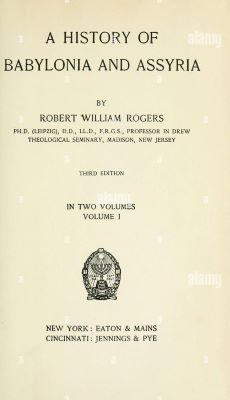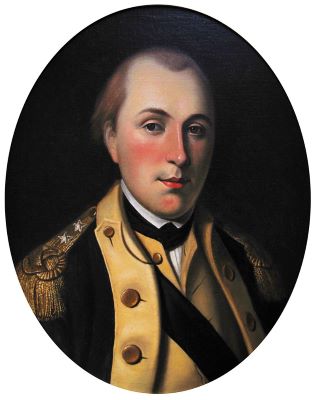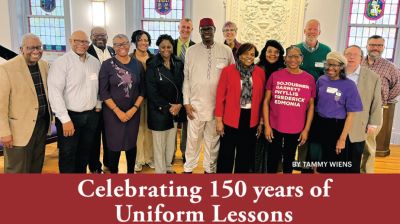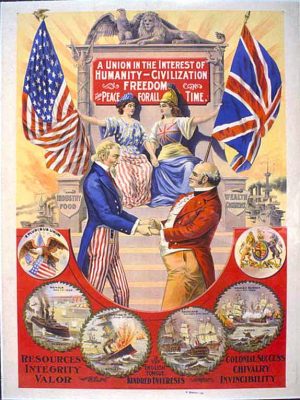
Woke American exceptionalism is still American exceptionalism. This realization occurred to me last week when I was watching a Woke presentation online and the term flashed in my mind. It wasn’t exactly a “eureka” or OMG moment as the light bulb clicked on. But it was a coming together of thoughts that brought order to chaos and helped me make sense of what has been transpiring in the culture wars especially recently.
Woke American exceptionalism is a derivative of standard American exceptionalism. America is still inherently different from all other countries but from a different perspective. It retains the Christian, Protestant basis. But it expresses not simply an “America First” value but an “America Alone.” In other words, it pronouncements often occur as if the rest of human history hadn’t occurred and that the only humanity that matters is the one here because we are exceptional.
Below are the examples that led me to this realization.
THE AMERICAN REVOLUTION
The American Revolution looms large in traditional American exceptionalism. We were God’s New Israel fighting Pharaoh for freedom. We were led by people of Providential inspiration who brought us to victory. We were born and constituted by sacred documents.
Not quite with Woke American exceptionalism. If anything it was the reverse which happened. The people who led the so-called Revolution and the documents they created are to be condemned as the products of a racist, sexist, imperialist people. The country they created far from being an example for the world completely failed to meet Woke standards.
So where does the United States in 1787 rate on the Woke scale of judgement?
How many multi-racial, multi-ethnic, multi-religious countries were there in the world in 1787?
Of those countries, how many declared their basis on the principle of “Life, Liberty, and the Pursuit of Happiness” or something similar even if it was honored in the breach?
Of those countries, how many had never occupied the land of another people?
Was what was exceptional about the United States in 1787 was that it existed in a world of multi-racial, multi-ethnic, multi-religious countries of no slavery and freedom for all that included no conquered land and were in compliance with Woke standards?
Perhaps instead of judging the United States of 1787 based on Woke values today, it also would be appropriate to examine the United States in comparison to where the rest of the world rates on the Woke scale. Instead of simply condemning the United States for failing to live up to the vision expressed in 1776 and 1787, how many multi-racial, multi-ethnic, multi-religious countries even had such a vision then in the first place that they could fail to observe?
TOPPLING STATUES OF SLAVE-OWNERS
In the last few weeks, the toppling of the statues of slave-owners has accelerated. Founding Fathers who also owned people have been particularly targeted. In a previous blog, I wrote about the competing views of two New York Times op-ed writers (To Topple or Not to Topple Statues: The Battle between “Come Let Us Reason Together” versus “Abso-fricking-lutely!”). One, Bret Stephens, called for determining whether the person in question had helped advance the country towards the goal of creating a more perfect union. The other, Charles Blow, drew a line in sand: if you own people, then you should be toppled.
At the very end, after I had written the blog, a thought occurred to me. I added this ending before I posted it:
P.S. The damnatio memoriae (or “condemnation of the memory”) was tried in ancient Egypt on Queen Hatshepsut and King Akhnaton. Will we now have to erase the names of Pharaohs who had slave labor including Nubians and demolish their buildings or is that up to Egypt? What should we teach about these “abhorrent and depraved” people like Tut?
It was this comment that started me towards Woke American Exceptionalism a week later, to thinking beyond America. How many Pharaohs, Caesars, kings, and emperors didn’t own people? If George Washington and Thomas Jefferson are to be toppled, what does that mean for the non-American slave-owners? What does it mean for the tourist sites of many countries once tourism begins again? What does it mean for the holdings of museums? Are all slave-owners from all places from all times to be toppled or just the white ones?
MOUNT RUSHMORE
The event that put the pieces together in my mind was a program “Whose Hero? New Perspectives on Monuments in Public Landscapes” by the International Coalition of Sites of Conscience on June 24 and 26. I was only able to watch part of the initial program and it was a few weeks before I could see the taped version of it. The specific presentation in question was by Sally Roesch Wagner, the Executive Director, Matilda Joslyn Gage Foundation (whom I know). She is from South Dakota. Her topic was mostly about Mount Rushmore. It has been in the news lately and will be the subject of a future blog.
Much of Sally’s presentation was information about Mount Rushmore, its design, its purpose. Then she strayed into not history or politics but to psychology. I will not repeat or summarize what she had to say about the heterosexual white male except to note her enjoyment in denigrating them for these expressions of power like Mount Rushmore. It was at that moment when I had my moment of clarity.
What I thought of was Abu Simbel.
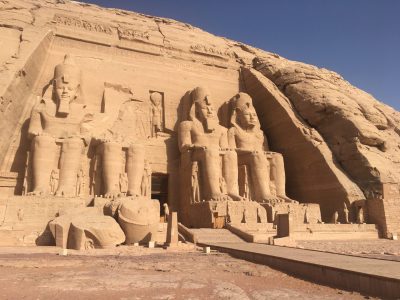
You are looking at four giant-sized statues of a male. Unlike Mount Rushmore, the four personages are the same person, Ramses II, Pharaoh of the Exodus. He is a slave-owner who needs to be toppled by Woke standards. The Founding Fathers identified with the Israelites “who were slaves in Egypt” and sought to escape the yoke of Pharaoh as they did of King George III. It was while listening to Sally about Mount Rushmore that I thought of Ramses at Abu Simbel. Then I thought of the other Egyptians male rulers who had built giant statues to themselves. Then I thought about rulers of other lands like Mesopotamia. Kings (and Queens) build things. They build cities, temples, forts, palaces, irrigation systems, roads, and victory monuments and statues in their own honor.
We used to build things in America. From the Erie Canal to the Apollo Moon Landing, we were a society that built things. Only lately, meaning in the 20th century, did we start building edifices for each and every President called Presidential Libraries. In human history, it is hardly unusual for rulers to shout their praises to the heavens. Typically rulers commemorate themselves. In any event, listening to Sally talk about Mount Rushmore led to think about Abu Simbel and then to all the ways rulers have for millennia throughout the world build in their own honor. Part of what is unusual about Mount Rushmore is that none of the people on the mount commissioned the work. Mount Rushmore is part of a larger story of the human experience. But then again, Woke American Exceptionalism isn’t interested in what people elsewhere have done, only what evil Americans have done.
SAVAGES
Now that I was aware of Woke American Exceptionalism, I was prepared for it. I then watched an education program by the National Museum of the American Indian (NMAI). In that program, the presenter spoke about the use of the word “savages” to describe American Indians. He cited both primary sources and textbooks.
His references to “savages” immediately caused me to look beyond white Americans. Once again, Egypt was way ahead of us on describing people as subhumans who live like animals.
Lo, the miserable Asiatic,
He is wretched because of the place he’s in:
Short of water, bare of wood,
Its paths are many and painful because of mountains
He does not dwell in one place,
Food propels his legs,
He fights since the time of Horus,
Not conquering nor being conquered,
He does not announce the day of combat,
Like a thief who darts about a group.
(The Instruction to Merikare)
Just so you know I am not picking on the Egyptians, the Mesopotamians voiced similar views.
The Martu who know no grain
The Martu who know no house or town
The boors of the mountains…
Dresses in sheepskins,
Lives in a tent at the mercy of wind and rain
Does not offer sacrifice
He digs up truffles in steppe but does not know how to bend his knee
He eats raw meat. In life he has no house, in death he lies lot buried in a grave.
(The Marriage or Myth of Martu)
The uncivilized “other” has been around for a long time. Typically the “other” is portrayed in unflattering terms.
Here is an example from a World War I recruiting poster. Without the words, would it have occurred to you that Germans were the savage other?
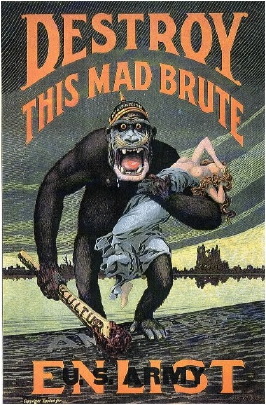
One of the lessons I was reminded of from Woke American Exceptionalism is that power corrupts and absolute power corrupts absolutely. Science fictions fans are aware that First Contact and Close Encounters of the First, Second, and Third Kind can be fraught with danger (Columbus Day: Close Encounters of the Third Kind). Sooner or later, people with disproportionate power over another people tend to use it….and justify it on the basis that the foe aren’t real people as we are.
Finally, let’s not forget Christianity and Woke American Exceptionalism. Once upon a time, indigenous people throughout the world lived in peace and harmony with each other and nature. Then white people arrived and the Original Sin occurred. Now those people need to repent and restore the purity which once existed. It’s one of our oldest stories.


